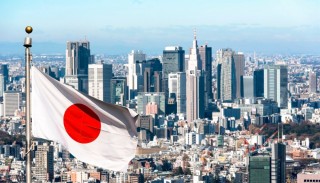Loading
Search
▼ Japan Won’t Use US Treasury Holdings In Tariff Talks
- Category:Other
Japan will not use its US Treasury holdings as leverage in upcoming trade talks with the US, scheduled for April 17.
Itsunori Onodera, policy chief of the Liberal Democratic Party, emphasized that Japan, as a US ally, wants to avoid actions that could disrupt financial markets. “Causing market disruption is certainly not a good idea,” he said.
This announcement follows Japan’s pullback from US Treasuries last week, which caused long-term yields to rise.
The move has sparked speculation that global reserve managers, including China, might reconsider investments in US government debt amid trade tensions.
Japan is seeking an exemption from the US tariffs imposed on April 9, which include a 24% tariff on Japanese goods and a 25% tariff on Japan’s auto industry. The US, in turn, is asking for concessions on agricultural products and LNG.
1️. Japan faces unprecedented auto industry impact despite alliance status
Japan’s response to the tariffs reveals the difficult position of a traditional US ally facing significant economic damage.
The 25% tariffs on its vital auto industry could cost Japanese manufacturers an estimated $24 billion according to industry analysis.
This represents a serious threat to Japan’s economy, with UN trade agencies projecting potential losses of $17 billion in car exports alone.
The Japanese government’s explicit statement that they “would not intentionally take action against U.S. government bonds” highlights their delicate position, needing to defend economic interests while maintaining alliance obligations.
Japan’s automotive industry has relied heavily on exports to the US market, with companies like Toyota and Honda now facing dramatically reduced profitability that threatens their global business models.
2. New tariffs mark historic shift in US trade policy
The current tariffs represent a significant protectionist shift in American trade policy.
The average effective US tariff rate has risen to 22.5%, reaching levels not seen since 1909 according to economic analysis by Capital Group.
These tariffs end over three decades of relatively free trade in North America, fundamentally altering the economic landscape that Japanese companies had built their strategies around.
The broader regional impact is significant, with Japan highlighting the challenges faced by ASEAN neighbors who are also impacted by the new system.
This protectionist approach marks a departure from the multilateral trade framework Japan and other countries had operated within since World War II.
3. Economic ripple effects extend beyond direct tariff costs
The tariffs will trigger complex economic consequences beyond just the immediate impact on Japanese exports.
Analysts project that the tariffs will increase US consumer prices by 2.3% on average, resulting in approximately $3,800 in lost purchasing power per American household.
For Japanese automakers specifically, the situation forces difficult choices about production locations, with many having invested heavily in Mexican manufacturing facilities that are now disadvantaged by the new tariff structure.
The Japan Automobile Manufacturers Association has warned that production adjustments will be necessary, potentially affecting jobs both in Japan and at Japanese-owned plants in the US.
These interconnected impacts demonstrate how modern global supply chains make tariff impacts far more complex than in previous eras of trade conflict.
- April 13, 2025
- Comment (0)
- Trackback(0)


